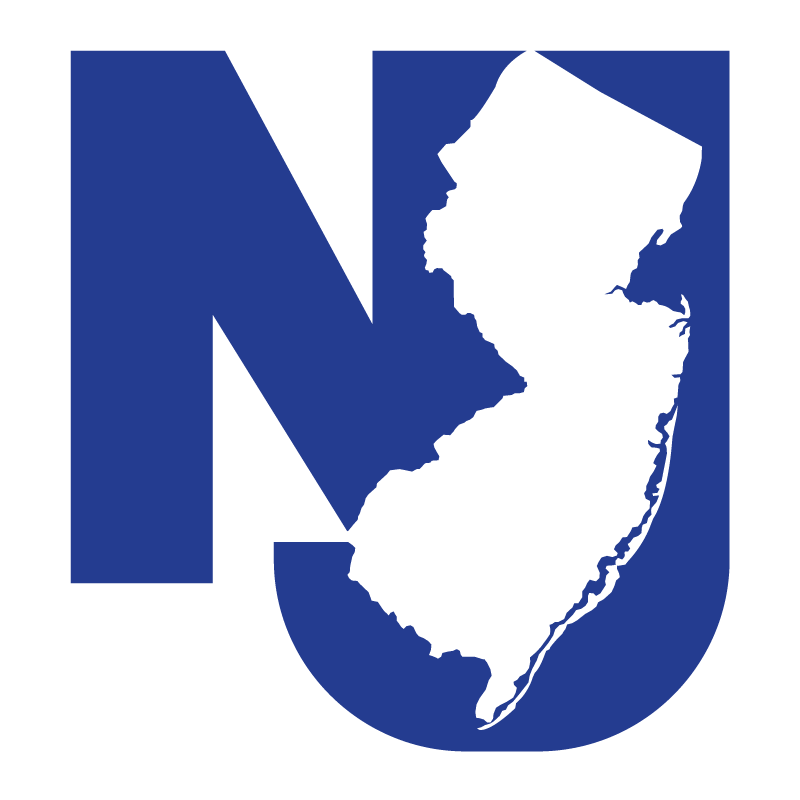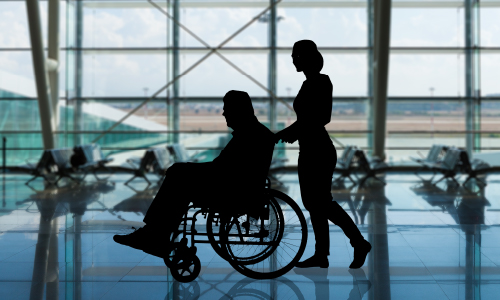Public Transit and Air Travel
Accessible Transportation Services in New Jersey for Individuals with Disabilities
New Jersey provides a variety of transportation services to ensure individuals with disabilities have access to essential services, employment, education, and social activities.
Invisible
NJ Transit Accessible ServicesInvisible
Buses, Trains, and Light Rail
- Accessible Buses: All NJ TRANSIT buses comply with ADA standards, featuring wheelchair lifts/ramps and designated seating.
- Accessible Trains and Light Rail: Stations include elevators, ramps, and accessible platforms on commuter lines like the North Jersey Coast Line and Raritan Valley Line.
- Customer Assistance: Boarding assistance is available but must be requested in advance via NJ TRANSIT’s Travel Assistance Program at 1-973-275-5555.
- Fare Discounts: Individuals with disabilities can apply for NJ TRANSIT’s Reduced Fare Program. Reduced Fare Program
Invisible
Public Transit
i
Through NJ TRANSIT's Reduced Fare Program, discounted rates are available for people with disabilities and for people ages 62 years and older at all times on NJ TRANSIT trains, buses, and light rail.
NJ TRANSIT has lift-equipped and kneeling buses as well as accessible rail stations.
With Reduced Fares, you can save 50% or more on a regular one-way fare. Personal assistants ride for free when supporting an individual with a disability with proper ID.
There are two ways to get a reduced fare:
- People with disabilities can show their Medicare Card to the bus driver or train conductor, and seniors can show any government-issued ID that lists their date of birth (driver's license, passport, birth certificate, Medicaid card, MTA Reduced Fare Card, PATH Senior Fare Card, or PA Senior Transit ID).
- Show a NJ TRANSIT Reduced Fare ID (Learn how to apply below).
Apply for a Reduced Fare IDInvisible
To receive a Reduced Fare ID, you can apply online, or you can download the application, fill it out, and mail it to the address listed. If you are eligible, you will receive your ID card in about 4 weeks.
Note: Individuals with disabilities will need a physician or nurse practitioner to certify their application. A physician or nurse practitioner can also certify if you need a personal care assistant to help you ride NJ TRANSIT.
If you have questions, email ReducedFare@NJTRANSIT.com or call 1-973-491-7112 Monday through Friday, 8:45 a.m. to 4:15 p.m. or TTY 1-800-772-2287 from 8:30 a.m. to 5 p.m. daily.
If you are blind or visually impaired, you can also call 1-973-648-3333 to speak with someone at the NJ Commission for the Blind and Visually Impaired for help.
Help Using Public Transportation Independently- NJTIP @ Rutgersnvisible
Need help learning to travel using public transportation? The New Jersey Travel Independence Program (NJTIP) at Rutgers University offers expert travel instruction, empowering individuals to travel safely and independently using buses, trains, light rail, community transportation, and ride-sharing services.
NJTIP specializes in working with individuals with disabilities and older adults, teaching them how to safely use public transportation, including reading schedules, planning trips, paying fares, using free planning tools and mobile apps, and taking safety precautions.
The program offers one-on-one travel instruction, small group training, and in-school sessions, both in-person and virtually. NJTIP also provides public transit orientations for professionals and caregivers who support persons with disabilities and older adults.
This program is free of charge, though participants are responsible for their own transit fares during training. Upon completing one-on-one instruction, participants also receive a travel incentive.
For more information:
- Call: 1-848-932-4499
- Email: njtip_info@njtip.rutgers.edu
- Visit website: njtip.rutgers.edu
- Complete the online program referral form: online program referral form
- Download our brochure: Brochure
Invisible
Amtrak Accessibility ServicesInvisible
Amtrak provides accessible services for passengers with disabilities in New Jersey and throughout its network. Key services include:
Accessible Seating – Designated areas for passengers with mobility disabilities or those needing accessible features.
Meals & Special Diets –Options available for passengers with disabilities; special dietary needs may be accommodated. For more information, visit: https://www.amtrak.com/planning-booking/accessible-travel-services/meal-services-for-passengers-with-a-disability.html.
Reservations – Some accessible seating and spaces require reservations. For more information, visit: https://www.amtrak.com/planning-booking/accessible-travel-services/making-reservations-for-passengers-with-a-disability.html
Station Accessibility & Assistance – Amtrak works to ensure stations are accessible. Check if a station meets your needs and learn about available assistance. For more information, visit: https://www.amtrak.com/planning-booking/accessible-travel-services/station-accessibility.html
Traveling with Service Animals – Service animals are welcome in all passenger areas. Pets are only allowed on certain trains. For more information, visit: https://www.amtrak.com/planning-booking/accessible-travel-services/service-animals.html
For New Jersey station information, call 1-800-872-7245 or visit Amtrak Accessibility Services.
Invisible
Out-of-State Accessible Transit Services
These services provide door-to-door transportation for individuals age 65+ or with disabilities who cannot use public transportation. Rides must be scheduled 1–3 days in advance.
Pennsylvania: SEPTA Customized Community Transportation
- Paratransit Service: The SEPTA Regional Rail’s Trenton Line runs from Trenton, NJ, to Philadelphia.
- For more information: Call 1-215-580-7145 or visit septa.org
New York: MTA Access-A-Ride
- The Port Authority Trans-Hudson (PATH) train connects Newark, Harrison, Jersey City, and Hoboken to New York City.
- For more information: Call 1-718-393-4999 or visit MTA Access-A-Ride
Invisible
Air Travel
All travelers are required to undergo security screening at airport checkpoints.
If you need help at the security checkpoint, you or your companion can alert a TSA officer. You may also provide a TSA notification card or medical documentation describing your condition.
You can request a passenger support specialist to guide you through the security process.
For questions ahead of your trip, call TSA Passenger Support at 1-855-787-2227 or fill out online request form.
Medications at TSA CheckpointsInvisible
Tell the TSA officer you have medically necessary liquids and/or medications.
Remove these from your carry-on bag; they will be screened separately. Declare accessories (freezer packs, IV bags, pumps, syringes). Labeling can help speed screenings.
3-1-1 Liquids Rule Exemption: You can bring larger amounts of medically necessary liquids, gels, and aerosols, but you must declare them for inspection.
If an item raises an alarm, it may require additional screening and could be prohibited.
For more information, visit TSA Special Procedures.
 Official Site of The State of New Jersey
Official Site of The State of New Jersey
